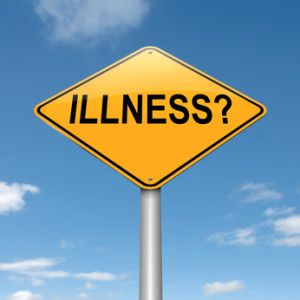Is Dementia Reversible?
Dementia symptoms such as mental confusion and memory problems may be caused by a variety of medical conditions, including infections, poor nutrition, sleep deprivation, liver disease, and medication side effects. Learn how to identify and treat these underlying causes.

Dementia Overview
Dementia is a term used to describe a group of neurological conditions that gradually worsen over time. Trusted Source suggests that about 1 in 3 people aged 85 or older may develop some form of dementia. However, it's important to note that dementia is not a typical part of the aging process.
When an individual has dementia, the nerve cells in their brain, called neurons, experience damage. This damage affects various brain functions, including memory, speech, and even emotional recognition. The symptoms of dementia can vary depending on the person and the specific type of dementia they have.
Some of the common signs of dementia include difficulties in remembering recent events, having conversations or finding the right words, managing finances, navigating familiar places, and performing daily tasks. Impulse control, judgment, movement, reading, writing, and managing emotions or mood can also be impacted. Additionally, some individuals with dementia may experience hallucinations or delusions, making it challenging to distinguish reality from imagination.
It's important to seek a full evaluation from a medical professional if you suspect that you or a loved one is displaying early signs of dementia. While there is currently no cure for dementia, lifestyle changes and treatments can help manage symptoms.
To learn more about dementia and dispel common myths, continue reading here.
Let's raise awareness and understanding of dementia together!
When an aging senior exhibits dementia signs such as:
- Mental confusion
- Forgetfulness
- Memory problems
It may be due to another medical condition. It does not mean that dementia is the only diagnosis.
Becoming aware of these medical conditions will help you to determine the difference between dementia signs... and other causes of memory loss.
Infection, usually urinary tract infections (UTIs)
The first thing to consider... when an aging senior shows signs of increased moodiness and sudden increase in mental confusion... is they need a urinalysis to rule out a UTI. Infections are treatable. They can reverse the confusion and memory problems an aging senior may exhibit.
It is standard practice for a doctor to order a urinalysis... when the family member of an aging senior notes that there has been an increase in confusion. Proper treatment of the infection will decrease the irritability and end mental confusion.
Lack of proper nutrition or malnutrition
It is important when visiting to check into their refrigerator on a regular basis. Look for outdated products, spoiled food. Check the cupboards to observe what they may be eating or cooking for themselves.
Proper nutrition is important to the body and brain functioning at its optimal level. A decrease in food intake or consumption of an adequate intake of vitamins and minerals can cause memory loss, confusion, feeling sluggish and disinterested.
Lack of sleep or sleep deprivation
Poor sleep affects how our body and mind functions. A good night's sleep is important to our physical and mental well being.
Individuals exhibiting dementia signs and symptoms will experience a disturbance in their sleep. As well as, their awake cycles. It is important that a routine be developed to encourage sleep. This can decrease the problems with the lack of sleep. It is just as important that the caregiver of a person with dementia get adequate sleep as well.
Liver disease
The liver is responsible for filtering the blood and breaking the substances we take into our body... in the form of food and medication, into a non-toxic form into the bloodstream.
When the liver becomes inefficient, it is not able to filter those toxins. Over time, the rise in the toxins in the body will affect all the body organs, including the function of the brain. The resulting mental confusion is irreversible.
Low Blood Sugar or Hypoglycemia
Low blood sugar, also known as hypoglycemia, can cause a person to become irritable. Personality changes and short term mental confusion can occur. This happens when a person has not eaten and their blood sugar drops. These symptoms appear as dementia signs and symptoms, but they are not.
Get a person to drink some juice or eat a peanut butter sandwich will restore the blood sugar levels to normal. This will resolve the symptoms.
Low Thyroid levels or Underactive thyroid
Low thyroid levels are probably an overlooked condition to the cause of memory loss. The thyroid gland releases several different hormones. These hormones regulate our body temperature, our metabolism, as well as other functions.
A person with low thyroid levels, known as hypothyroidism, may exhibit symptoms such as... memory problems, depression, hair loss, dry skin, weight gain, constipation and irritability.
These symptoms are reversible when treated with medication.

Medications
Medications and medication safety is important to the aging senior. Many medications can cause short-term memory loss or confusion. Some medications in the elderly have the opposite effect than the intended result. Most drug-induced states of confusion can be reversed. This is done by discontinuing the medication or by taking it as directed.
Seizures
Seizures occur... when the electrical conductions in the brain become disorganized and over stimulated. Individuals that suffer from frequent and severe seizures... may develop some form of dementia.
This becomes increasingly likely in those that stop breathing during the seizure. The lack of oxygen to the brain will result in brain damage that may be irreversible.
It is important to be aware, individuals that have been diagnosed with dementia increases the possibility that seizures will occur as the disease progresses.
Substance abuse, long term drug addiction
Abuse of illegal drugs, prescribed medication, and alcohol interfere with normal brain function. Drugs do interfere with the brains function and destroys brain cells.
Those individuals that have long-term substance abuse problems have a very high chance ... of developing dementia. This condition is reversible ... IF the abuse is stopped early...before permanent damage occurs.
More on other medical conditions that may cause dementia like symptoms.
Is Dementia Reversible?
Is it possible to reverse dementia? While most cases of dementia are currently not reversible, there are several medications available to treat the symptoms of Alzheimer's disease, such as aducanumab, which may help in slowing down its progression.
However, it's important to note that since dementia involves permanent brain damage, treating individuals with dementia symptoms will not reverse their condition. The damage done to the brain cells cannot be undone. But there is ongoing research exploring potential alternative treatments for dementia, as well as existing treatment options that can help slow down its progress.
In some cases, the symptoms of certain conditions can mimic those of dementia, leading to misdiagnosis. However, addressing the underlying condition in these individuals can resolve the dementia-like symptoms. For example, treating depression has been found to reverse the symptoms of pseudodementia.
It can be challenging for doctors to differentiate between dementia and pseudodementia. However, recent studies have indicated that the size of specific brain regions can aid doctors in recognizing pseudodementia.
If someone is experiencing dementia symptoms, it is crucial for them to seek medical advice for an accurate diagnosis. A doctor can help identify any other contributing factors and rule out conditions that may be masquerading as dementia.
Our Resources section can help you find the information and tools that you need. We have courses, videos, checklists, guidebooks, cheat sheets, how-to guides and more.
You can get started by clicking on the link below. We know that taking care of a loved one is hard work, but with our help you can get the support that you need.
Click here to go to Resources Section now!
